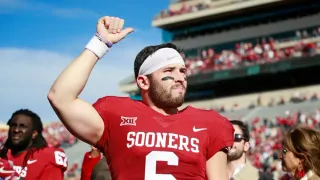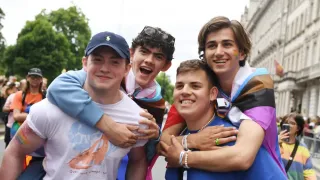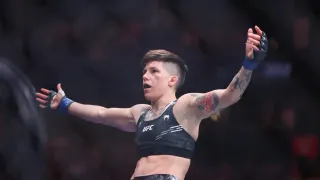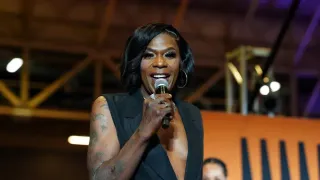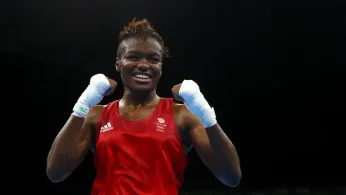
Jul 28
Olympic Champion Nicola Adams: “It Was Easier to Be Gay Than a Woman in Boxing”
READ TIME: 3 MIN.
Nicola Adams, Britain’s trailblazing double Olympic gold medalist, has revealed that her journey as a female boxer was marked by more hostility due to her gender than her sexual orientation. In a recent interview, Adams stated, “In boxing, it was way more offensive to be female than gay,” reflecting on the entrenched sexism she encountered in the sport alongside the challenges of being openly LGBTQ+.
Adams, who won historic flyweight golds at London 2012 and Rio 2016, has become an outspoken advocate for inclusivity in sports. Her comments come amid renewed debate about gender, fairness, and eligibility in Olympic boxing, as the Paris 2024 Games shine a spotlight on issues affecting women and LGBTQ+ athletes alike.
From her earliest days in the gym, Adams faced skepticism and outright resistance simply for being a woman. “There were no women’s changing rooms, so I had to get changed in the toilets,” she recalled, describing the lack of basic facilities and support for female athletes during her formative years. Adams has spoken about being overlooked for fights and sponsorships, experiences that echo the wider hurdles women face in male-dominated sports.
Her perseverance paid off, and Adams made history as the first British woman to win Olympic boxing gold. Yet, she notes that the fight for recognition and respect did not end with her victories. “It was always a battle for equality, to be seen as worthy competitors,” Adams said, emphasizing that the struggle for fairness continues for women boxers worldwide.
While Adams acknowledges that homophobia is still present in sport, she found that being openly gay was less of an impediment than being a woman in boxing. “People were more offended by me being a woman in the ring than me being gay,” Adams explained, highlighting the unique intersection of sexism and homophobia faced by LGBTQ+ women in elite athletics.
Adams has used her platform to champion LGBTQ+ visibility and acceptance. She is set to host a new BBC podcast on LGBTQ+ sport, saying, “As a proud gay athlete, it's a huge honour to present this celebration of LGBTQ+ sport which I hope will inspire and empower the next generation of athletes” . Her openness has paved the way for greater acceptance, yet Adams stresses that major progress is still needed—especially for transgender athletes and others facing compounded discrimination.
The 2024 Paris Olympics have reignited debate about eligibility and inclusion in women’s boxing, particularly following the participation of Algerian boxer Imane Khelif. Khelif, who previously faced disqualification for not meeting gender eligibility criteria, returned to the Olympic ring after being cleared by the International Olympic Committee (IOC). Adams weighed in on the controversy, expressing concern for fairness and safety in the sport, especially for cisgender women who have fought for decades for the right to compete at the highest level .
Adams’ remarks have sparked discussion about how sports organizations can balance inclusion with fairness. IOC spokesperson Mark Adams clarified that Khelif’s participation is “not a transgender issue” and that all athletes are subject to the same eligibility standards . The ongoing situation reflects broader tensions in international sport, as governing bodies seek to navigate evolving understandings of sex, gender, and human rights.
Adams’ story highlights the need for ongoing advocacy to ensure sports are welcoming and equitable for all, regardless of gender identity or sexual orientation. “We need to keep pushing for equal treatment, representation, and respect—on and off the field,” Adams has said in previous public appearances . Her leadership continues to inspire LGBTQ+ athletes, women, and allies as they fight for a future in which no one is forced to choose between living authentically and pursuing their dreams.
